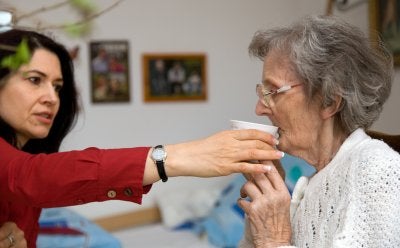It’s perfectly normal for a senior to need some extra care as he or she advances in age, particularly given that growing older can increase the risk of numerous health problems. However, knowing exactly when to make the transition to in-home care can be difficult. Even if you don’t think your loved one needs some extra care right now, it’s a good idea to research your options for elder care in Memphis. Once you know which assisted living options are available in your area, you can begin to plan how to meet your loved one’s changing needs.
 Cognitive Indicators
Cognitive Indicators
Cognitive impairment becomes more likely as your loved one ages. At some point, your loved one’s cognitive difficulties can inhibit his or her ability to perform self-care tasks. It’s advisable to introduce your loved one to a caregiver before these issues become too severe. Some indicators that it’s time to discuss elder care with your loved one include forgetting to take medications, forgetting to eat meals, displaying signs of confusion, and missing doctor’s appointments.
Physical Signs
Sometimes, the need for elder care becomes obvious rather abruptly, such as when a loved one suffers a stroke or a fall. In other cases, a loved one may gradually experience increasing physical limitations. Unusual changes in sleeping or eating patterns, difficulty walking, problems keeping up with the housework, and frequently developing bumps, bruises, or more severe injuries are some of the signs that your loved one may need extra care.
Socio-Emotional Issues
Seniors are at a high risk of suffering from depression and other mental disorders. Unfortunately, the signs of depression among the elderly can easily be mistaken for indicators of Alzheimer’s or other forms of dementia. Often, depression is attributable to social isolation. Consider whether your loved one still participates in his or her favorite activities, goes out to the senior’s center or other gathering places, and meets with friends regularly. If not, he or she could be experiencing mental health issues. Hiring a caregiver for your loved one will provide him or her with crucial social contact, cognitive stimulation, and of course, day-to-day care.
